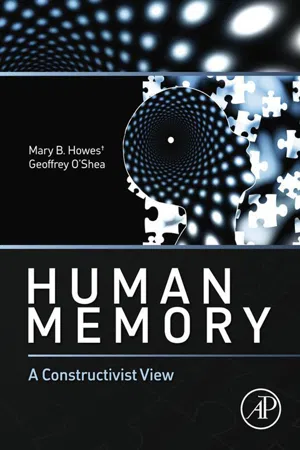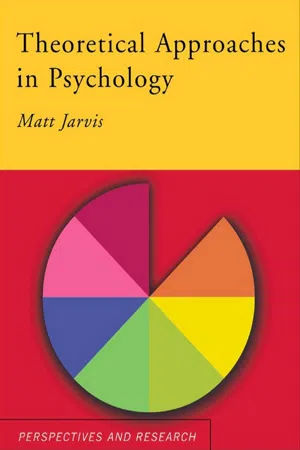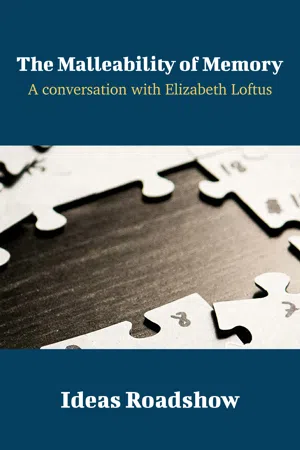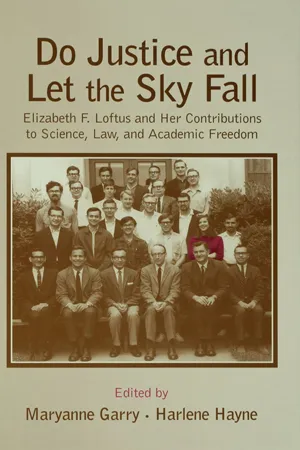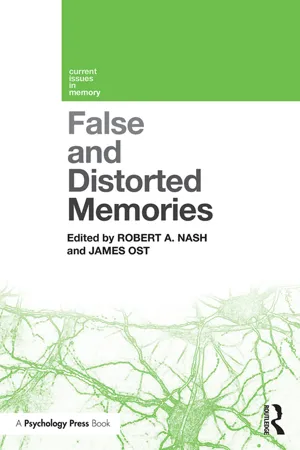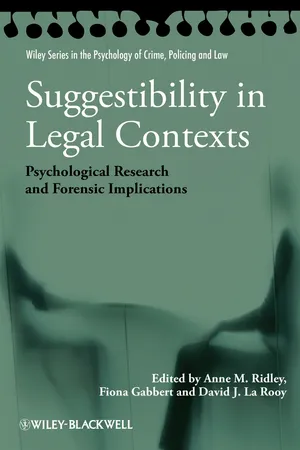Elizabeth Loftus
Elizabeth Loftus is a prominent cognitive psychologist known for her research on human memory and the malleability of eyewitness testimony. She has conducted extensive studies on the phenomenon of false memories and the impact of leading questions on memory recall. Loftus's work has had significant implications for the legal system and has highlighted the potential for memory distortion in eyewitness accounts.
7 Key excerpts on "Elizabeth Loftus"
- eBook - ePub
- Howard Burton(Author)
- 2021(Publication Date)
- Ideas Roadshow(Publisher)
...The Malleability of Memory A conversation with Elizabeth Loftus Introduction The Benefit of the Doubt Imagine that one day next week, you suddenly find yourself accused of a terrible crime in the distant past that you are entirely innocent of. Your family is bewildered, your friends are anxious, and your colleagues steadily start taking distance from you. You begin by trying to put a brave face on things, certain that these horribly inexplicable accusations will soon be lifted and your life will somehow return to normal. But they are not. Instead, matters only get worse. The case goes to court, where you are consistently portrayed as a despicable monster who has systematically lived out a double life of abuse and intimidation on the weak and the vulnerable. After several months of sustained public humiliation, your mental state is now so precarious that you simply don’t know what to believe. When the verdict finally does come down, and you are found guilty, it almost feels like a relief to have a sense of “closure” of this nightmare. Swiftly, mercilessly and with no apparent reason whatsoever, your life is now irrevocably ruined. This deeply disturbing Kafkaesque plot is not, sadly, a film noir thriller but an actual scenario that has been played out, time and time again, in real courtrooms and with real people, whose only misfortune has been to be close to someone undergoing “repressed memory therapy.” Elizabeth Loftus has witnessed this sort of thing many times. One of the world’s foremost memory experts, she has devoted the majority of her research life towards demonstrating the often highly tenuous and malleable nature of human memory. She began her memory work in relatively mundane circumstances, studying the role of witness memory in traffic accidents...
- eBook - ePub
Human Memory
A Constructivist View
- Mary B. Howes, Geoffrey O'Shea(Authors)
- 2013(Publication Date)
- Academic Press(Publisher)
...Loftus EF. Eyewitness testimony. Cambridge, MA: Harvard University Press; 1979b. 42. Loftus EF. The reality of repressed memories. American Psychologist. 1993;48:518–537. 43. Loftus EF. Creating false memories. Scientific American. 1997;277(3):70–75. 44. Loftus EF. Memories of things unseen. Current Directions in Psychological Science. 2004;13(4):145–147. 45. Loftus EF, Altman D, Geballe R. Effects of questioning upon a witness’ later recollections. Journal of Police Science and Administration. 1975;3(2):162–165. 46. Loftus EF, Feldman J, Dashiell R. The reality of illusory memories. In: Schacter D, ed. Memory distortions: How minds, brains, and societies reconstruct the past. Cambridge, MA: Harvard University Press; 1995:47–68. 47. Loftus EF, Hoffman HG. Misinformation and memory: The creation of new memories. Journal of Experimental Psychology: General. 1989;118:100–104. 48. Loftus EF, Loftus GR. On the permanence of stored information in the human brain. American Psychologist. 1980;35:409–420. 49. Loftus EF, Miller DG, Burns HJ. Semantic integration of verbal information into a visual memory. Journal of Experimental Psychology: Human Learning and Memory. 1978;4:19–31. 50. Loftus EF, Pickrell JE. The formation of false memories. Psychiatric Annals. 1995;25(12):720–725. 51. McCloskey M, Zaragoza M. Misleading postevent information and memory for events: Arguments and evidence against memory impairment hypotheses. Journal of Experimental Psychology: General. 1985;114:1–16. 52. McConkey KM. The effects of hypnotic procedures on remembering: The experimental findings and their implications for forensic hypnosis. In: Fromm E, Nash MR, eds. Contemporary hypnosis research. New York: Guilford Press; 1992:405–426. 53. McConkey KM, Labelle L, Bibb BC, Bryant RA. Hypnosis and suggested pseudomemory: The relevance of test context. Australian Journal of Psychology. 1990;42:197–205. 54. McGaugh JL. Memory: A century of consolidation. Science. 2000;287:248–251. 55...
- eBook - ePub
- Matt Jarvis(Author)
- 2005(Publication Date)
- Routledge(Publisher)
...Many criminal trials hinge on eyewitness accounts of crimes, and the testimony of eyewitnesses carries great weight with juries. However, human memory does not work like a videorecorder—when we remember an event we reconstruct it from all the information available to us, including our imagination and hints dropped by the questioner. In most everyday situations this tendency is harmless, but clearly it is a serious matter in the courtroom. One line of research carried by Elizabeth Loftus and colleagues during the 1970s concerned the importance of the phrasing used when asking eyewitnesses questions. One of Loftus’s best-known studies is examined in some detail below. KEY STUDY: E.F.Loftus (1975) Leading questions and the eyewitness report. Cognitive Psychology 7, 560–572. Aim: Loftus set out to establish whether participants could be persuaded by misleading questions to remember false details of a film. Specifically she wanted to see whether mentioning in passing an object not present in the film would influence participants to remember it later as present. Method: 150 students were shown a short piece of film showing a white car that was involved in a crash. They then answered ten questions about the film. Nine of the questions were the same for all participants, but one question differed. Half the participants received the question ‘How fast was the white car going when it passed the barn?’ The remaining participants instead received the question ‘How fast was the car going while travelling along the country road?’ There was no barn in the film and the question mentioning a barn was meant to mislead the participants. One week later the participants returned and were given a further ten questions about the film, one of which was ‘Did you see a barn?’ Results: As expected, the participants who had previously had the question ‘How fast was the white car going when it passed the barn?’ were much more likely to respond a week later by saying that they had seen the barn...
- Howard Burton(Author)
- 2021(Publication Date)
- Ideas Roadshow(Publisher)
...One of the world’s foremost memory experts, she has devoted the majority of her research life towards demonstrating the often highly tenuous and malleable nature of human memory. She began her memory work in relatively mundane circumstances, studying the role of witness memory in traffic accidents. It turns out that asking witnesses how fast cars were going before they smashed into each other, for example, will consistently yield higher estimates than asking how fast they were going before they merely hit each other, neatly demonstrating how just changing a word or two in a question might affect how people report past experiences. But this was, scientifically speaking, just the tip of the iceberg. “I began to see these questions as pieces of misinformation that could contaminate or distort the witness’ memory, and my body of work more generally began to be about how post-event suggestions might contaminate memory. We ultimately called this phenomenon ‘the misinformation effect’.” Despite her rigorously scientific disposition, Elizabeth has never been one for permanently retreating to the isolation of a laboratory. As a keen young faculty member at the University of Washington, she began reaching out to the legal world, approaching one of the chief trial attorneys in the Public Defender’s Office in Seattle to ask if she might begin consulting with him in the hopes of applying some of her new-found knowledge of memory’s fallibility to the real world of court rooms and indictments. “I worked with him on a case involving a woman who was accused of attempted murder where there were memory issues, and that woman ended up being acquitted. “I took all this information—the case, the acquittal, the science that was relevant to it—and I wrote an article for Psychology Today magazine...
- eBook - ePub
Do Justice and Let the Sky Fall
Elizabeth F. Loftus and Her Contributions to Science, Law, and Academic Freedom
- Maryanne Garry, Harlene Hayne, Maryanne Garry, Harlene Hayne(Authors)
- 2013(Publication Date)
- Psychology Press(Publisher)
...Maybe this work could be offered as expert testimony.” Phil agreed this would be a great idea but explained that the laws of evidence work according to a perplexing tradition: If some class of evidence had never been presented before, then there’s no precedent for it, and if there’s no precedent, then it’s inadmissible. Beth soon began to understand this dilemma firsthand: She tried to present such testimony several times over the next year or so and sure enough, judges wouldn’t allow it in. In light of this frustrating judicial catch-22, it seemed almost a miracle that on June 3, 1975—the day her father died of cancer in his Los Angeles home—Seattle Superior Court Judge Janice Niemi allowed Elizabeth Loftus to provide Washington State’s first, and of course precedent-establishing, expert testimony on the topic of eyewitness identification. 1975 TO THE PRESENT This seminal event took place 30 years ago. It is at that juncture in the saga of Beth’s life that my part of this story largely ends, and I leave to others the task of filling in the many details of her subsequent pivotal contributions to science and society. But I would like to end my tale with two observations. First, it’s axiomatic that no person, no matter how persuasive and charming she is, can make serious contributions to controversial arenas without acquiring enemies along the way. Beth is no exception. Her original work on behalf of those accused of heinous crimes earned her the bitter animosity of many individuals whose judicial philosophy, contrary to “innocent until proven guilty,” appeared to be, “where there’s smoke, there’s fire.” This animosity ramped up dramatically in the 1980s and 1990s when the beneficiaries of Beth’s forensic interests morphed from suspects in muggings and convenience-store robberies to individuals who, after having shown up as perpetrators in “repressed but recovered” memories of alleged victims, were accused of having sexually abused their children many years earlier...
- eBook - ePub
- Robert A. Nash, James Ost, Robert A. Nash, James Ost(Authors)
- 2016(Publication Date)
- Psychology Press(Publisher)
...7–24). Chicago: Nelson-Hall. Tousignant, J. P., Hall, D., & Loftus, E. F. (1986). Discrepancy detection and vulnerability to misleading postevent information. Memory & Cognition, 14, 329–338. Tversky, B., & Marsh, E. J. (2000). Biased retellings of events yield biased memories. Cognitive Psychology, 40, 1–38. Underwood, J., & Pezdek, K. (1998). Memory suggestibility as an example of the sleeper effect. Psychonomic Bulletin and Review, 5, 449–453. Wade, K. A., Garry, M., Read, J. D., & Lindsay, D. S. (2002). A picture is worth a thousand lies: Using false photographs to create false childhood memories. Psychonomic Bulletin & Review, 9, 597–603. Walther, E., & Blank, H. (2004). Entscheidungsprozesse im Falschinformationsparadigma: Die Rolle von Unsicherheit, Metakognition und sozialem Einfluss. [Decision processes in the misinformation paradigm: The role of uncertainty, metacognition, and social influence.] Psychologische Rundschau, 55, 72–81. Walther, E., Bless, H., Strack, F., Rackstraw, P., Wagner, D., & Werth, L. (2002). Conformity effects in memory as a function of group size, dissenters and uncertainty. Applied Cognitive Psychology, 16, 793–810. Weldon, M. S. (2001). Remembering as a social process. Psychology of Learning and Motivation, 40, 67–120. Weldon, M. S., & Bellinger, K. D. (1997). Collective memory: Collaborative and individual processes in remembering. Journal of Experimental Psychology: Learning, Memory, and Cognition, 23, 1160–1175. Williamson, P., Weber, N., & Robertson, M.-T. (2013). The effect of expertise on memory conformity: A test of informational influence. Behavioral Sciences and the Law, 31, 607–623. Wright, D. B., Self, G., & Justice, C. (2000). Memory conformity: Exploring misinformation effects when presented by another person. British Journal of Psychology, 91, 189–202. Yuille, J. C., & Cutshall, J. L. (1986). A case study of eyewitness memory of a crime. Journal of Applied Psychology, 71, 291–301....
- eBook - ePub
Suggestibility in Legal Contexts
Psychological Research and Forensic Implications
- Anne M. Ridley, Fiona Gabbert, David J. La Rooy(Authors)
- 2012(Publication Date)
- Wiley-Blackwell(Publisher)
...1 Suggestibility: A History and Introduction ANNE M. RIDLEY KEY POINTS This chapter will provide an overview of the conceptual and historical factors that have contributed to modern research and theories of suggestibility in legal contexts: Definitions of suggestibility. Early work to establish whether suggestibility was one or more phenomena. Eyewitness testimony in the early twentieth century. Suggestibility in the early twentieth century. Cognitive and social theories relevant to suggestibility. The 1970s and early 1980s heralded a new era in the study of suggestibility in legal contexts, an area that had been largely neglected since the early twentieth century. Using experimental studies, Elizabeth Loftus in the USA demonstrated how easy it was, under certain circumstances, to mislead people into remembering incorrect details about a witnessed event (Loftus, Miller, & Burns, 1978). Loftus’s was an experimental approach. In Europe, through his clinical and forensic work, Gisli Gudjonsson noted that some individuals seemed to be more suggestible than others. This approach assumed that suggestibility is a trait and led to the development of a model of interrogative suggestibility (Gudjonsson & Clark, 1986). Much research and debate have followed to establish whether suggestibility is a trait (i.e. some people are inherently more suggestible than others), or whether suggestibility is merely the result of situational factors that can be manipulated experimentally. Nevertheless, what both approaches have in common is the fact that they consider suggestibility from the point of view of its impact on the accuracy of information obtained during the investigation of crimes, and that is the focus of this book. The notion of interrogative suggestibility was originally proposed by Binet (1900) and has been used since by others, particularly Gudjonsson (e.g. Gudjonsson 2003; Gudjonsson & Clark, 1986)...

